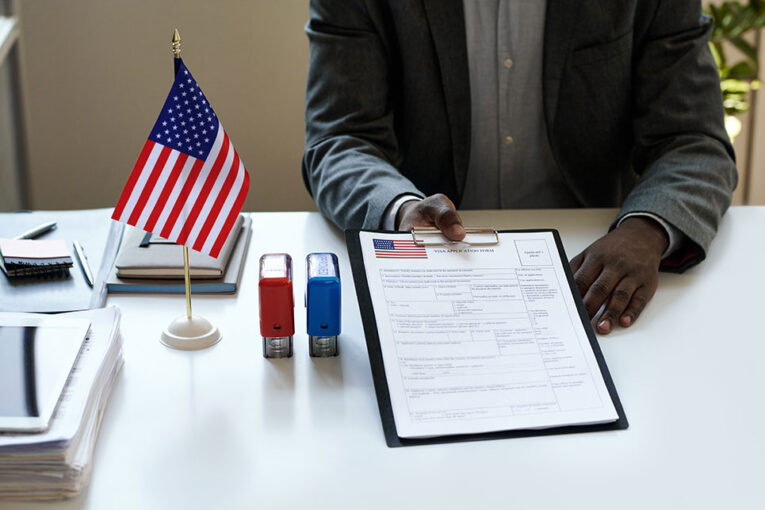Introduction
Definition of Litigation Discovery
Litigation discovery refers to the pre-trial phase in a lawsuit where the parties obtain information and evidence from each other and from third parties through certain legally approved methods. This process allows all sides to be aware of the relevant facts and build their case. Discovery enables transparency and fairness in civil litigation.
Importance and Purpose of Litigation Discovery
The discovery process is crucial in any lawsuit because it allows the parties to obtain all pertinent information before the trial begins. It prevents trial by ambush and enables litigants to evaluate the strengths and weaknesses of their case. Comprehensive discovery also facilitates settlements since both sides are aware of the evidence. Overall, discovery serves the ends of justice.
Understanding the Discovery Process
Overview of the court system and civil litigation
Civil litigation begins when the plaintiff files a complaint against the defendant seeking legal remedy for some alleged wrong. The defendant is served with the complaint and has a chance to respond. Then the case proceeds through various pre-trial phases like discovery and motions before reaching the trial stage, where evidence is presented before a judge or jury.
Key stages and procedures involved in the discovery process
The discovery process involves formal procedures to exchange information between the parties. The main methods are:
1. Written discovery methods
a. Interrogatories
These are written questions served by one party on the other, which have to be answered under oath. They help learn about the facts and evidence the opponent has.
b. Requests for admission
These require the responding party to admit or deny factual statements to narrow down disputed issues for trial.
c. Requests for production
These seek documents, electronically stored information, or other tangible items from the opposing party.
2. Oral discovery methods
a. Depositions
These are live interviews conducted under oath with parties or witnesses. A court reporter keeps track of them and records the information.
b. Examination of witnesses
Parties can subpoena and orally examine third-party witnesses to get evidence for their case.
Role of court rules in shaping the discovery process
Every court has rules on the scope, methods, and timeframe for discovery. Parties must follow these rules or risk facing sanctions or evidence being suppressed. Court supervision ensures the process is fair and efficient.
The Significance of Litigation Discovery
Gathering Information and Evidence
1. The importance of strong evidence in litigation
In both bench and jury trials, the outcome depends heavily on the quality of the evidence presented. Compelling evidence establishes the facts and proves the legal claims. Good discovery yields such evidence.
2. Methods and strategies for evidence gathering
Smart attorneys use discovery tools strategically to obtain documents, witness statements, expert opinions, and all other forms of relevant evidence to prove their case. They identify key evidence and vigorously pursue it.
Trial Preparation
1. How discovery aids in trial preparation
The information obtained via discovery allows thorough trial preparation by revealing the opponent’s witnesses, arguments, and evidence. Attorneys can thus anticipate questions, prepare for cross-examination, and develop counterarguments.
2. Leveraging discovery to build a strong case
By analyzing the discovered information, attorneys can focus on the strongest legal theories, emphasize the most compelling facts, and present the evidence for maximum impact at trial.
Advantages and Challenges of Litigation Discovery
Advantages
1. Fairness and transparency
Discovery enables both parties to see the opponent’s cards before trial. This levels the playing field and makes the adversarial system more just.
2. Opportunity to uncover hidden information
Parties must provide any relevant information the other side requests. This brings out key facts they might want to hide.
3. Facilitating settlement negotiations
Since discovery highlights the strengths and weaknesses of each side’s case, it encourages realistic settlement discussions and avoids surprises at trial.
Challenges
1. Cost and time consumption
Discovery can be a lengthy and expensive process, especially with multiple requests and responses being filed. Managing costs is difficult.
2. Scope and relevance of discovery requests
Parties often disagree on what is within the scope of discovery and relevant to the claims and defenses in the lawsuit. This leads to objections and court intervention.
3. Balancing privacy concerns
There is always a tension between an open discovery process and keeping sensitive information confidential. Protective orders from the courts help achieve this balance.
Latest Developments in Litigation Discovery
Impact of technology on the discovery process
1. Online courts and dispute resolution
Some court systems now use online case management tools and video conferences to streamline discovery and resolve disputes faster.
2. Use of video hearings and remote trials
Remote depositions and hearings via videoconferencing have increased during the pandemic, reducing travel costs for litigation.
Potential benefits and concerns regarding online discovery
1. Access to justice and expanded services
Online discovery tools can make the process more accessible to self-represented litigants and those in remote areas. But a digital divide exists.
2. Truth-detection and dehumanization concerns
Some worry that virtual hearings may inhibit judges and juries from evaluating witness credibility. Lack of human interaction can also be an issue.
Best Practices for Successful Litigation Discovery
Thorough knowledge of court rules and procedures
Mastering the technical rules ensures your requests are valid and compliance is met. Know the ins and outs of the court’s discovery process.
Strategic use of written and oral discovery methods
Tailor your methods to the specific information needed and sequence them logically. Combine broad requests with targeted questions for optimum results.
Effective communication with opposing counsel
Being professional and business like avoids unnecessary disputes. Discuss objections calmly and compromise when possible.
Collaboration with expert witnesses and consultants
Experts can help formulate technical requests and review responses. Consultants offer strategic advice on discovery planning and document review.
Conclusion
A recap of key points discussed
- Discovery provides transparency and fairness in civil litigation.
- Understanding court rules is vital to navigating the discovery process.
- Parties can gather evidence and prepare for trial through tailored discovery strategies.
- While technology is improving access, human limitations remain.
Emphasize the importance of effective litigation discovery.
Mastery of discovery methods and rules allows for a productive exchange of information critical to the adversarial system. Careful discovery yields the evidence necessary for just verdicts.
Future trends and developments in the field
Continued innovation in e-discovery software and online dispute resolution will likely expand. But the increasing volume and complexity of data will be an ongoing challenge. Simplified discovery for small claims may gain traction.
FAQs
The purpose of the litigation discovery process is to allow parties in a court case to obtain information from each other that is relevant to the claims or defenses being made. It is an essential step in preparing for trial and gathering evidence.
The different types of discovery available in litigation include depositions, interrogatories, requests for production of documents, and requests for admission. Each type has its own purpose and allows parties to gather information in different ways.
A deposition is a formal oral examination of a witness that takes place out-of-court. It allows attorneys to ask questions, gather information, and obtain sworn testimony from a potential witness. Depositions can be used at trial to impeach a witness or to present important information.
Interrogatories are written questions that one party may send to another party in a lawsuit. The receiving party is required to answer these questions under oath and provide specific information. Interrogatories are a commonly used method of discovery to obtain information from the opposing party.
A request for production of documents is a written request made by one party to another party, asking for certain documents that are relevant to the lawsuit to be produced. This allows parties to obtain important information and access evidence that may be crucial to their claim or defense.
Requests for admission are written requests made by one party to another party, asking that certain facts or issues be admitted or denied. This can help streamline the litigation process by narrowing down the issues in dispute and identifying facts that are not in contention.
The process of production of documents involves one party disclosing and providing certain documents that are discoverable to the other party. The federal rules of civil procedure provide guidelines for the production of documents, ensuring that relevant information is shared between the parties.
Discoverable information refers to any information, documents, or evidence that is relevant to the claims or defenses in a lawsuit. It can include written records, emails, contracts, financial statements, and any other materials that may help guide the parties in preparing their case.
The litigation discovery process allows parties to gather important information and evidence that can be used to build and support their claim or defense. By obtaining discovery through depositions, interrogatories, and requests for production of documents, parties can gather the necessary facts and evidence to support their arguments.
Written requests, such as interrogatories and requests for production of documents, play a crucial role in the litigation discovery process. They provide a formal means for parties to request specific discovery and obtain information or documents from the opposing party.
If a party fails to comply with the discovery requests, there can be legal consequences. The requesting party may seek court intervention to enforce the requests and compel the non-complying party to provide the requested information or documents. Non-compliance with discovery rules can also result in sanctions imposed by the court.





